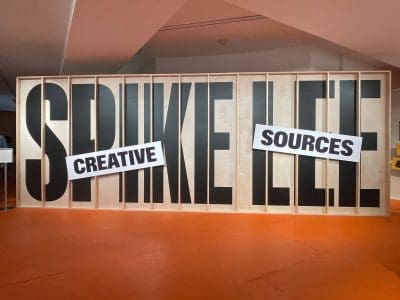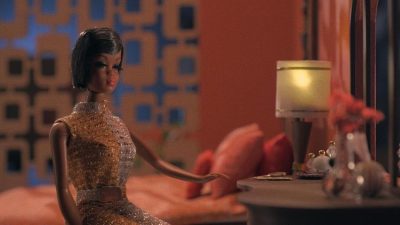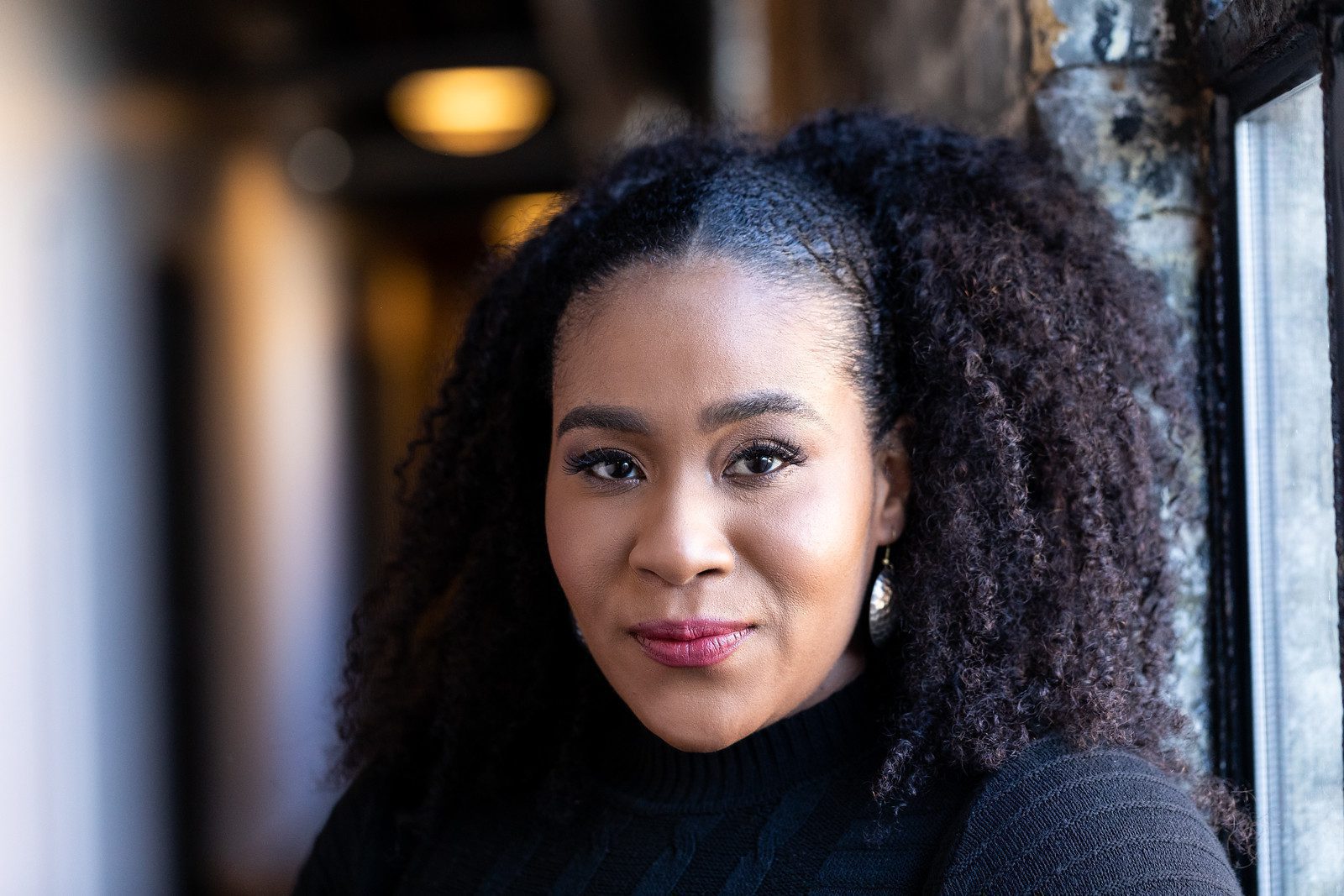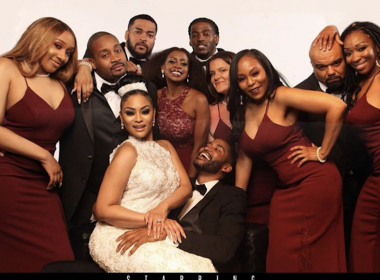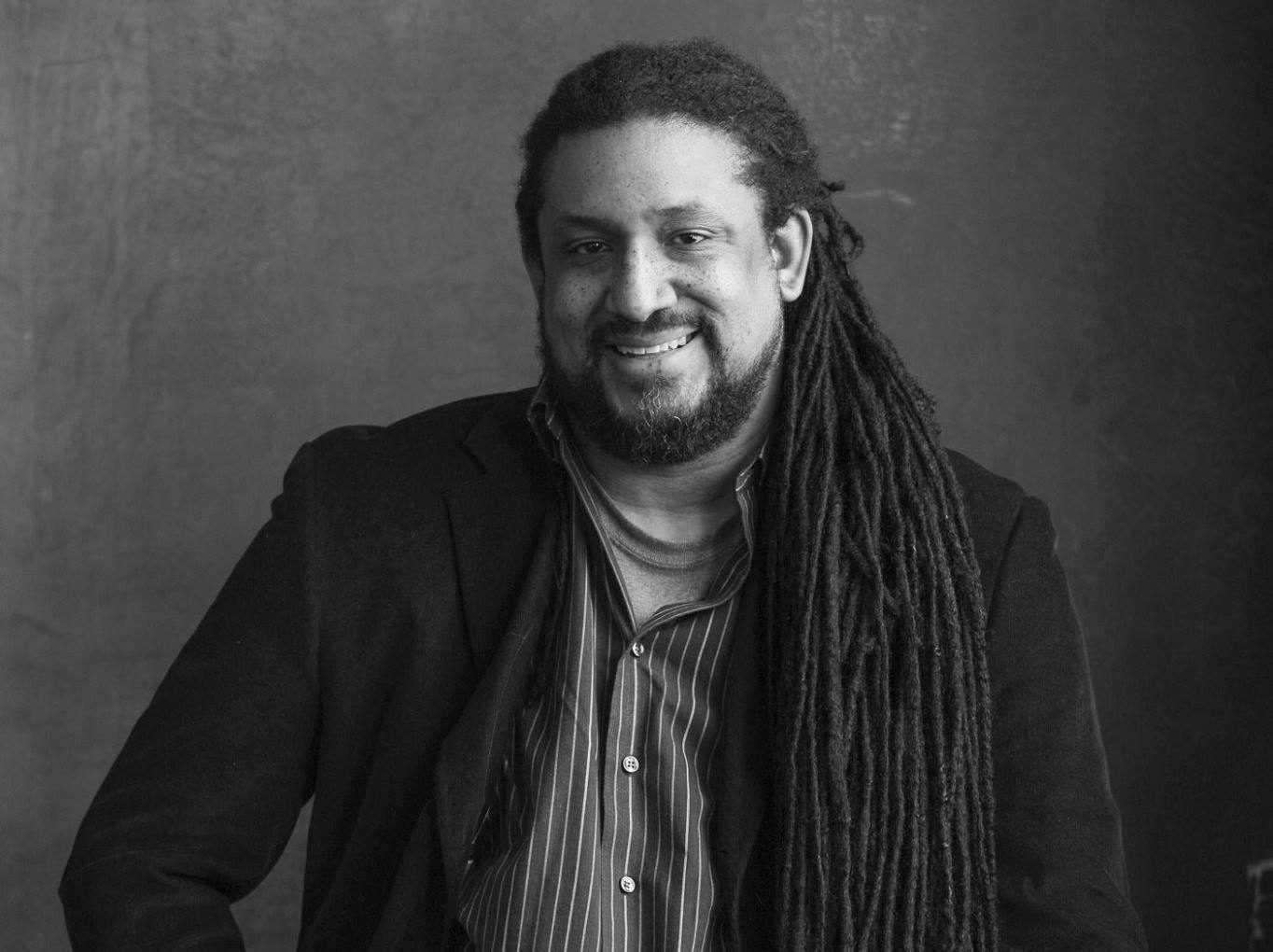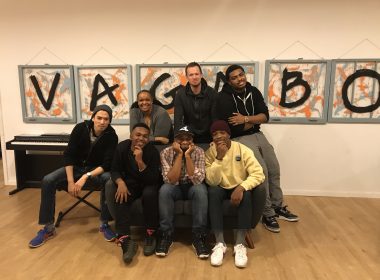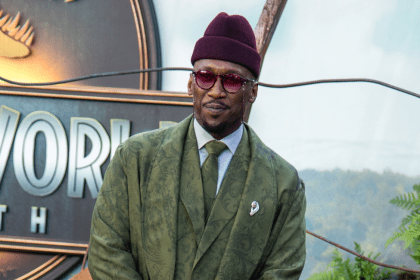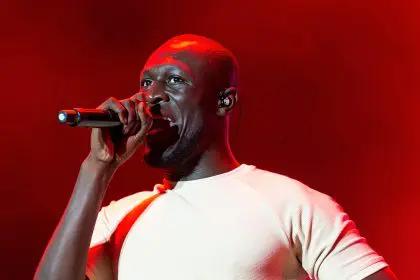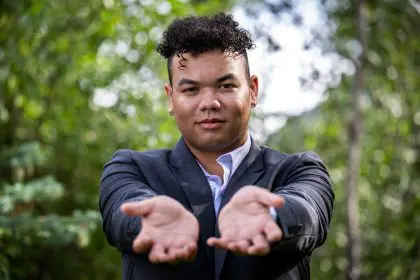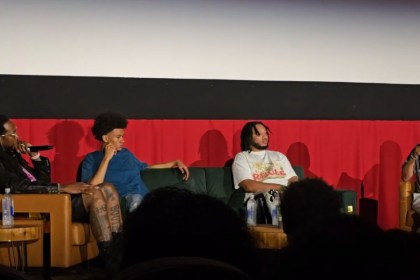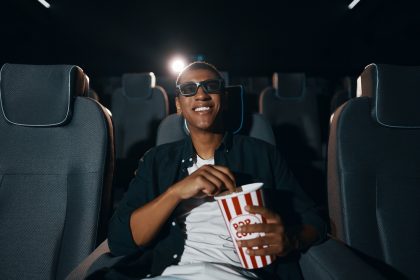
Actor, writer, director, photographer, and Emmy Award-winning producer Evita M. Castine was raised in Naperville, Illinois; and Scotia, New York, by her father – a business executive, and her mother – a musician and art collector.
Her past short films, including Saudade, have had successful festival runs and cable network releases. She also has the distinction of being the first African American woman to direct what is known as a “546”, which is an advanced film project at the University of Southern California.
With her latest film, Only Light, Castine hopes to increase awareness of the issue of human trafficking in Africa and worldwide.
How did you get your start in the film industry?
I moved to Los Angeles to work as a page at NBC. I was giving studio tours, seating people on “The Tonight Show with Jay Leno” and taking assignments at different departments within NBC. Eventually, I got an internship in development at a studio. The owners also ran two nonprofit organizations, and they tapped me to run two of their programs — one of them was developing screenwriters in emerging economies through a screenwriting competition. They sent me all over Europe and I got to spend a lot of time at films schools in Moscow, Russia; Warsaw, Poland and organize events at major film festivals all around the world. I met so many people from all areas of the film industry. Because I was working at a non-profit – I did everything from answering phones, taking notes in board meetings to organizing major events for producers and directors. It was a really exciting time. I worked all the time, even though it wasn’t a lot of money, I learned so much about what it looks like from an artistic point of view and a business point of view. In addition, I was acting in local theatres at night, I was in 3 different theatre companies, so I was really busy and I learned so much about working with people with different personalities
What was your “aha” moment when you knew for sure that this is what you wanted to do?
I was in Bill Duke Actor’s Workshop and Mr. Duke used to ask all of us every week in a stern voice “What are you waiting for?” He gave us some book titles to read about filmmaking. He was very clear, very direct with me about the fact that as a woman and as a woman of color, that I had to take matters into my own hands. I bought the books, went home and started my production company by registering it with the state. Then I made my first short film with $200 in my apartment. It went on to air on BET’s Lens On Talent and they sent me a check for $500. I felt like I won the lottery or something, I wasn’t expecting that. My friends helped me – I just used whatever I had around me. I made something with my friends, it was fun and someone paid me for it – I was in.
Tell me about your new short film Only Light?
Only Light is about a young girl who is kidnapped from the Democratic Republic of the Congo and sold in the sex industry where she finds relief by escaping through her dreams.
It was made in a very competitive class at the University of Southern California School of Cinema called “546” which is basically an Advanced Production class and people compete for a position on a production. In order to direct a 546, you submit your reel and then a short list is selected from a committee and then if you are short listed as a director you have to create a team consisting of a writer and producer from the short list as and then you pitch your project to the faculty. Through this process, our film was selected to be produced and I worked on this film as the director day and night for about 7 months.
I spent my Christmas break interviewing people involved with or effected by human trafficking. I remember it was late on Christmas Eve and I was sitting in a Congolese church talking with the Pastor who had escaped the war in the Democratic Republic of the Congo who explained the conflict in great detail. The more I talked to people, (a lot of people offered to speak about their experiences) the more I felt like our film was really necessary – I decided that it was really important to make a film about a girl we could see. So many times in the news we hear about human trafficking in other countries, but it happens in our own backyard too.
From where did you draw the inspiration for such a narrative?
I worked with a wonderful writer, Thembi Banks, who wrote Only Light and had the script selected as a short list for 546. I have been following issues regarding women in Rwanda and the Democratic Republic of the Congo for years. I also saw two amazing plays that effected me deeply — Ruined by Lynne Nottage about women in the post civil-war torn Democratic Republic of the Congo (It won the Pulitzer in 2009) and The Convert by Danai Guirira about a young woman who converts to Catholicism to escape an arranged marriage in Zimbabwe. I left those plays transformed, I was a different person leaving than I was coming into the theatre and I knew that I wanted to do something cinematically that took place in Africa about the depths that human beings will go to survive and/or the ways in which the mind protects itself. So when I read Thembi’s script, I knew that I wanted to work with her and luckily for me, she wanted to work with me too!
What if anything do you want people to take away from this film?
There is a lot that I hope people take away from seeing the film, but I definitely want people to become more aware of Human Trafficking — that it can happen anywhere and it’s literally right underneath our noses. It’s a 32 billion dollar global and it’s the 3rd largest criminal industry after drug and gun trafficking. The mentality is that you can use all the drugs up, lose a gun, but you can always recycle a girl. It’s modern day slavery. We are talking about 27 to 30 million people enslaved all over the world. With that in mind, I started thinking about what is it to not see someone who is right underneath your nose — physically and emotionally — “what does it mean to see someone?” So often we overlook people or put too much on people that was never there in the first place. While making the film the creative team and I talked a lot about “taking the blinder’s off.” We often try to avoid the pain that comes from investigating and finding the truth in situations, but it’s necessary. I am guilty of it. I know what it’s like to have someone not see you and I have made someone into someone they aren’t. No one sees our main character for who she is, she is just a piece of property that needs to be manipulated, but she has a whole life going on inside of her and all she wants is for someone to notice her. The girl across the street, she makes the trafficker into this hero — but she doesn’t even know who he really is.
Talk about your experiences in the film industry as a woman of color.
I think being a woman of color in the film industry is a great thing artistically. In general, I’ve had to work really hard and do a lot of different things. I think about the speech you get when you are a child and it applies here. As a result, I haven’t had too many shady experiences because if I wanted to do something, I just figured out how to do it. Being an African American woman you have all kinds of experiences that enrich your perspective, and affect how you see the world, you will know about things that no one else will know — and you can bring that perspective to a story. I love that! Sometimes you get a story and you are just trying to unlock it and you are looking at your life and looking around you and trying to figure out what the scene is about and then bam! It comes. When I was talking to our cinematographers (there were two people for each key position) and the production designers, sound designers and editors, I am giving them cultural references, books, music, films, things that I like that I think help unlock clues to the story and they get excited about it! We talked for hours. One of the cinematographers was reading a book by an African novelist that I really like called Say You’re One of Them by Uwem Akpan to get a sense of the tone I was feeling for the film. I just think in general, no matter who you are — your experiences make you stand out from the crowd if you allow yourself to be seen. People find each other. I like where I am, I like where I am going. Everything I’ve experienced good and bad has taught me things. The times when people were condescending or told me that I talk weird or did things behind my back — I just kept going. I am sure it will happen again — it’s just the way things are sometimes — people aren’t going to like you for whatever reason, but they aren’t the only people out there.
Explain a bit the hustle of entering films into festivals.
You can find all of the information about different festivals online for free. People think it’s a hustle, but it’s not. It’s just a matter of getting the information that’s available online and doing the work. Don’t make a long short film that no one can program. Sitting through a 30-minute film that really only needed to be eight minutes just makes people angry. I don’t think that the whole reason for making a movie is to get into a festival (so weigh that in). You can register on withoutabox.com and you can look up every single festival that exists and see what they are looking for and a list of their criteria. Go to as many festivals as you can – you can also find short films online that played at a festival that might be too expensive to attend. You will learn the vibe of a festival and know if it’s a place you want to show your film. One of my favorite directors, I saw his film at a really obscure festival 5 years ago and I was inspired, I found him online and emailed him and stayed in touch and he’s introduced me to some wonderful people in the industry who are very supportive! At some of these festivals, you find the most interesting films and you meet other artists, it’s a community. Only Light showed at a festival in Paris and that came about because someone had seen Only Light and referred it to the festival director who asked if they could show it there. I think it’s helpful to think about how you will contribute artistically to the festival — it’s not just about showing, it’s about participating — it’s supposed to be festive after all!
How do you use social media to your advantage?
I use social media to connect with people. I have met so many people through social media that I wouldn’t meet in my everyday life — especially working so much and being in school. I let people know what’s happening with a project and I also connect with other artists by supporting their work. It’s really a community. From our initial team pitch of Only Light to the faculty at USC to being selected (They only pick three projects a semester), through production, post and mixing to the actual screening, our whole team was on twitter. Our wonderful casting director tweeted about the audition process — when the screening came, we had so many people that had been following us show up.
Who inspires you?
Wow. There are so many people I’d like to list but I’d have to say Bill Viola, Sanford Biggers, Steve McQueen, Maïwenn, Shaka King, Rodrigo Garcia, Javier Bardem and Alejandro Inarritu (just to name a few artists/directors I love).
Any favorite affirmations?
Trust yourself
What do you do to unwind?
I lift weights to unwind!
What’s the last great book you read?
The last great book I read was The Known World by Edward P. Jones and I also loved Say You’re One of Them by Uwem Akpan
Any advice or words of wisdom for aspiring filmmakers?
“Be honest and unmerciful” that’s Lester Bangs, but seriously, make something with whatever and whoever is around you. And be honest. Don’t wait. Do you know how refreshing honesty is? If you say one true thing, it resonates wherever it goes…Gloria Steinem said that first. Don’t worry about people criticizing you — that’s just human nature, par for the course. Everything takes time to develop, years and years – so just start. No matter who old you are — you have something to bring to the table and people are going to want to see it…I know I do.
What’s next for Evita Castine?
I have a short film in pre-production that’s part of a feature called The Anthology with seven other USC directors. I am also collaborating to write and direct a dark comedy with Amari Cheatom star of the Sundance hit film Newlyweeds. I am also editing a short I wrote, directed and acted in Paris over the summer about an American photographer in love in Paris and finishing post on a documentary I co-directed in Beijing, China over the summer about a Nigerian artist trying to make it China called Exploring Jerry. I am also putting together a collection of photographs I took of black artists in Paris. Finally, I am also finishing my last semester at USC — I am graduating in December!
Any final thoughts?
Make something! If it helps, start by saying you are making this project in memory of someone. The love you have will push you through. While I was working on Only Light, I did it in memory of my late Big Mama, Eva Lou Hopson. When it gets really hard and it did, I would think about her and I would just go. No one ever tells you that part, but I am just being honest.
Only Light plays in Chicago at the Black Harvest Film Festival on Wednesday Aug. 27 at 8:30 p.m.
Please check the site www.onlylightmovie.com or www.facebook.com/onlylightmovie for more show dates and times.
Feel free to connect with Evita via the following social media networks: Twitter – @evitamarie and Instagram – butterflymcqueen

